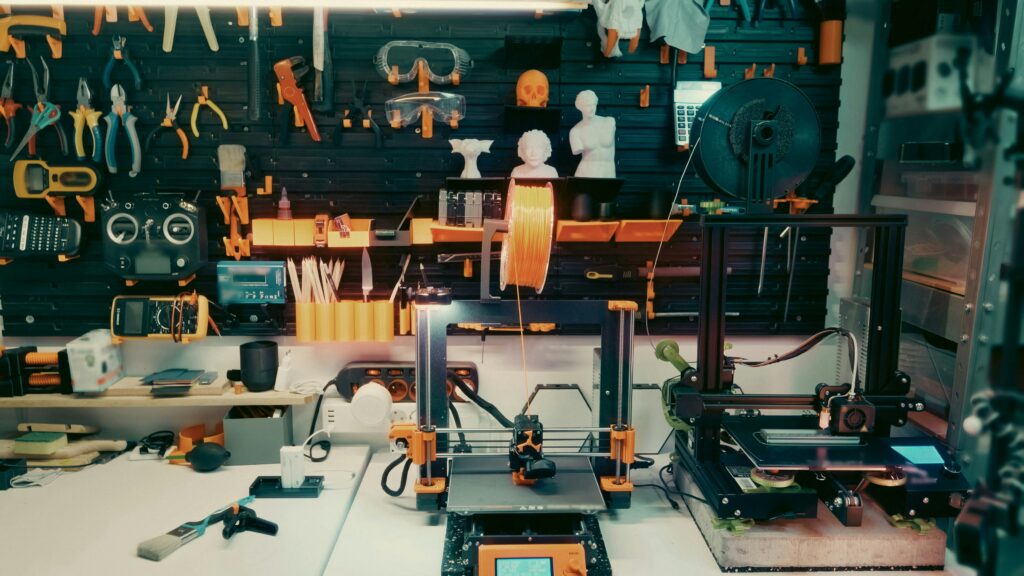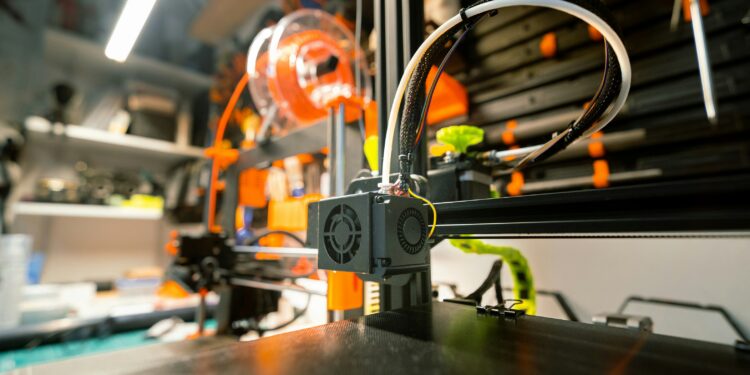Luminar Technologies Inc. (NASDAQ:LAZR) is a trailblazer in the autonomous vehicle industry, specializing in high-performance LiDAR (Light Detection and Ranging) systems designed to make self-driving and advanced driver-assistance systems (ADAS) both safe and scalable. Founded in 2012 by visionary entrepreneur Austin Russell—who became the youngest self-made billionaire in the world—Luminar was built from the ground up with a singular mission: to build a new kind of LiDAR technology that enables safe autonomy for every vehicle.
From its inception, Luminar sought to overcome the limitations of traditional LiDAR platforms by focusing on a differentiated technological approach. While most LiDAR competitors rely on the conventional 905-nanometer wavelength, Luminar pioneered the use of 1550-nanometer LiDAR, enabling significantly more power to be emitted while remaining eye-safe. This allows Luminar’s sensors to detect objects up to 250 meters away, with ultra-high resolution and frame rates—key for autonomous vehicles operating at highway speeds.
Unlike many players in the space, Luminar has taken a vertically integrated approach to product development, designing and manufacturing its own core components, including lasers, receivers, ASICs, and optical systems. This end-to-end control not only reduces cost and complexity, but ensures that every component is optimized for maximum performance and long-term automotive reliability.
In 2020, Luminar went public through a SPAC merger with Gores Metropoulos, becoming one of the first LiDAR-focused companies to trade on the NASDAQ under the ticker symbol “LAZR.” The public listing marked a pivotal moment for Luminar, providing the capital to accelerate its industrialization strategy, expand global operations, and scale production of its flagship product, the Iris sensor.
Luminar’s market leadership is further evidenced by its growing list of strategic partnerships with global automotive giants including Volvo, Mercedes-Benz, SAIC Motor, and Polestar. These partnerships are not just pilot programs—they represent deep integration of Luminar’s technology into production vehicles, many of which are already on the road or set to launch in the near term. Volvo’s upcoming EX90 SUV and Mercedes-Benz’s DRIVE PILOT initiative both feature Luminar sensors as critical components of their next-generation autonomous platforms.
Beyond hardware, Luminar has expanded into perception software through its Sentinel platform, which offers automakers a turnkey solution for enabling hands-free driving and enhanced safety features. By combining cutting-edge LiDAR hardware with a robust software stack, Luminar aims to capture a greater share of the ADAS and autonomy value chain—positioning itself as a full-stack technology provider for the next era of intelligent mobility.
As of 2025, Luminar continues to lead the industry with its commitment to safety, performance, and scale. With a renewed executive leadership team, expanding production capacity, and multi-billion-dollar commercial programs in motion, Luminar is on a path to become the foundational LiDAR supplier for the global automotive industry.
Strategic Partnerships and a Commercial Pipeline Built for Global Automotive Adoption
Over the years, Luminar has built an impressive roster of commercial partnerships with some of the largest names in the automotive industry. From Volvo and Mercedes-Benz to SAIC Motor and Polestar, top-tier OEMs are betting on Luminar’s technology to bring next-generation ADAS and autonomy into their vehicles. In December 2020, Luminar went public through a SPAC merger with Gores Metropoulos and began trading on the NASDAQ as LAZR, securing the capital necessary to expand production capabilities, invest in R&D, and scale global operations.
Luminar’s close integration with Volvo has already yielded results, with the LiDAR-equipped Volvo EX90 entering the production phase and targeting high-volume consumer deployment. Similarly, Mercedes-Benz has tapped Luminar to deliver long-range LiDAR for its DRIVE PILOT program, which aims to bring hands-free, Level 3 autonomy to highway driving in Europe and the United States. These partnerships demonstrate Luminar’s ability to meet rigorous automotive-grade safety and performance standards, and also validate its long-term revenue-generating potential.

CHECK THIS OUT: Lakeside Holding Limited (LSH): Key Insights and Strategic Developments and Lakeside Holding (LSH) Deepens Roots in Pharmaceutical Logistics with $1.5M Sinopharm Agreement.
Q1 2025 Earnings Reveal Underlying Business Strength Despite Leadership Shake-Up
On May 14, 2025, Luminar reported its Q1 financial results, beating Wall Street expectations despite major internal transitions. The company delivered an EPS of -$1.50, outperforming consensus estimates of -$1.62. While the headline EPS figure remains negative—a reflection of ongoing R&D investments—this result reaffirms Luminar’s operational discipline during a critical phase of growth and product rollout.
Shortly before the earnings call, Luminar’s Board of Directors announced a major leadership transition. Founder and CEO Austin Russell has resigned effective immediately, following a Board-led Code of Business Conduct inquiry. While the news initially caught many off guard, Luminar emphasized that the issue did not affect its financial results or long-term strategic direction. Russell will remain on the Board to support the incoming leadership with technical and transitional insights.
Replacing him is Paul Ricci, former CEO of Nuance Communications, known for transforming that company into a leader in conversational AI before it was acquired by Microsoft. Ricci’s appointment is seen as a strategic move that brings seasoned executive leadership to navigate the complex transition from technology development to commercialization. His deep background in enterprise software, productization, and scaling high-tech platforms aligns with Luminar’s roadmap as it begins to deliver on multi-year commercial contracts.
A Unique Competitive Advantage: 1550nm LiDAR at Automotive Scale
What continues to separate Luminar from its peers is the proprietary nature of its 1550nm LiDAR technology. This wavelength allows the company to emit significantly more light without violating eye safety standards, effectively giving vehicles superhuman vision. This breakthrough enables not only superior detection of road hazards but also enables autonomous functions at highway speeds—something that legacy LiDAR systems, with their limited range and pixel density, struggle to support.
Luminar’s LiDAR platform is not just more powerful—it’s also being produced at a cost structure that enables commercial-scale deployment. Its Iris and Sentinel platforms are designed to integrate seamlessly into the rooflines or front grilles of modern vehicles without adding unsightly protrusions or requiring extensive redesigns. With a growing focus on software, including real-time perception and highway autonomy modules, Luminar is expanding its revenue potential beyond hardware into recurring, higher-margin licensing streams.
Looking Ahead: Scaling Production, Software Monetization, and Margin Expansion
During the earnings call, CFO Tom Fennimore emphasized that Q1 2025 was not only about financial performance—it was a reflection of the company’s broader long-term vision. Luminar remains committed to ramping production and fulfilling volume agreements with OEMs while maintaining a healthy balance sheet and tight cost controls. While the company has not yet achieved profitability, it is on a clearly defined path toward positive gross margins through increased scale, operational efficiency, and software adoption.
The leadership team highlighted that Luminar’s technology enables automakers to unlock both safety and autonomous functionalities through a single LiDAR stack, which could simplify vehicle architectures and reduce costs over time. The company also reiterated that its focus on a few high-quality programs over dozens of speculative partnerships is a deliberate choice to ensure long-term sustainability, regulatory compliance, and deep customer integration.
Conclusion: Why Luminar Could Be a Breakout AI and Autonomy Stock in 2025 and Beyond
Despite leadership changes, Luminar Technologies has never been better positioned to lead the LiDAR sector into mainstream automotive adoption. Its unparalleled sensor performance, validated commercial pipeline, expanding software stack, and new CEO with enterprise-level experience combine to create a compelling growth narrative. With large-scale vehicle launches already underway and more on the horizon, Luminar is transforming from a bleeding-edge startup into a cornerstone technology provider for the autonomous age.
For investors seeking exposure to AI, automotive innovation, and the future of mobility, Luminar (NASDAQ: LAZR) offers a high-risk, high-reward opportunity with the potential to dominate a critical layer of the self-driving tech stack. As autonomy matures and safety becomes non-negotiable, the demand for ultra-reliable LiDAR systems will surge—and Luminar is ready to lead that charge.
READ ALSO: Lakeside Holding (LSH) Acquires Hupan Pharmaceutical to Enter China’s Medical Logistics Market and Lifeway Foods (LWAY): Probiotic Pioneer Targets $195M Revenue in 2024.






